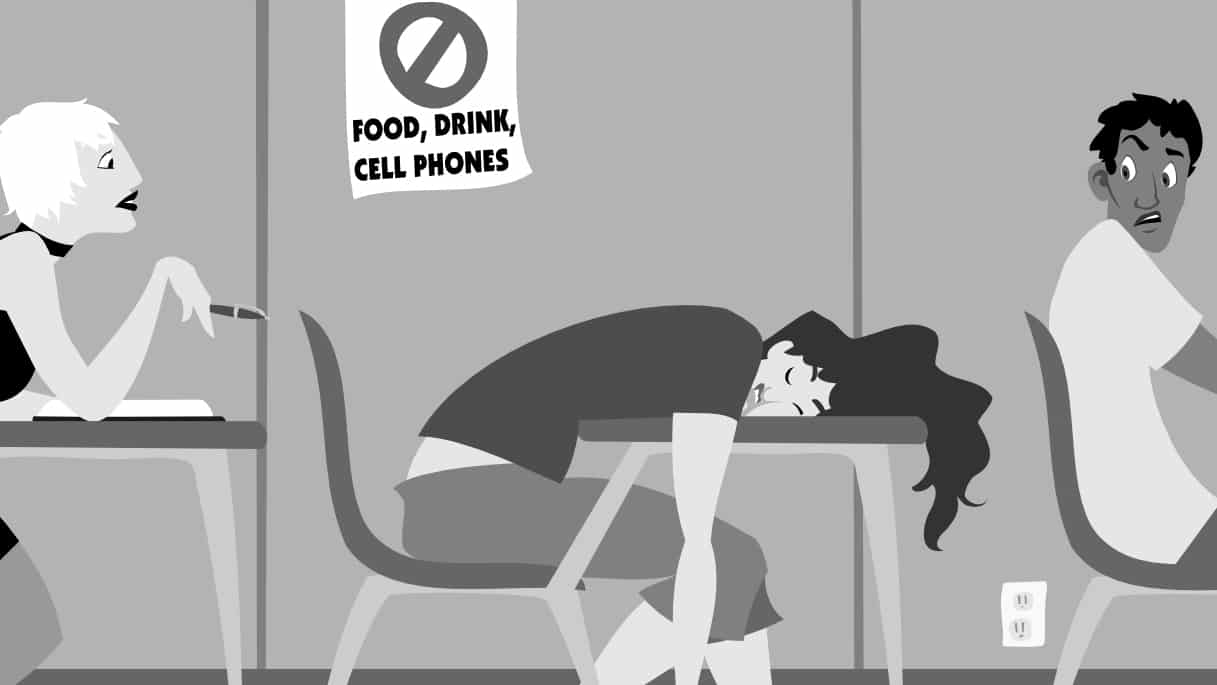The first part of this essay noted the reading and listening deficit in America and identified its causes as the brevity and rapid pace of modern communication and the widespread habit of closing our minds to ideas other than our own. It also suggested how individuals can overcome these obstacles. This continuation of the essay discusses the greater challenge of making the culture promote careful reading and listening.
Culture, as the term is used here, means the dominant ideas in society, those that are expressed not only in words but also in behavior. Changing the culture means replacing other people’s expressions of those ideas as well as one’s own. Every social agency, including the home, the communications and entertainment media, and the school have a role to play in such change, but the most important agency is arguably the school because its activity is most organized and purposeful and most directly concerned with teaching and learning. It therefore has the greatest potential for improving reading and listening and replacing intransigence and divisiveness with openness and cooperation.
There are many educational reforms that can help students become more able thinkers and skilled listeners and readers. (See my essays on problems in education and critical thinking.) But here I will discuss a limited number of approaches and practices that are relatively easy to apply in a wide variety of subject areas, and can have an impact outside the classroom. Readers who are teachers can initiate these approaches in their classrooms and urge their colleagues to do so. Readers who are not educators can recommend them to school administrators, school board members, and/or parent teacher associations.
Improving Concentration
Make the classroom a no-phone zone. If students smuggle their cellphones in, confiscate them until the end of the school day. (Parents may protest but most will understand if administrators explain that the rule will help students learn a skill crucial to both performance in class and success in life.)
Make clear the disadvantages of “speed reading.” For more than half a century, Americans have been told that reading more quickly improves comprehension. For example, John F. Kennedy was said to have become more proficient by increasing his reading speed from 300 to 1200 words a minute. But most authorities agree that too much speed can hinder understanding. A well-known comedian made the point humorously: “I took a course in Speed Reading and was able to read Tolstoy’s [1222 page] War and Peace in thirty minutes . . . It’s about Russia.”
Make clear the disadvantages of multitasking, the practice of doing two or three things at the same time to increase one’s productivity.” The idea may sound good, but the fact is that doing two or three things at once generally results in doing none of them well. And the more concentration a task requires—for example, weighing and considering the merits of ideas—the greater the loss.
Remind students frequently that reading is not merely a matter of running one’s eyes across the page and noticing a series of words; it is a search for the meaning created by the words.
Pause in the middle of a class period and have students write a brief explanation (50 words or so) of what has been said before that moment. Such an exercise not only emphasizes the importance of alertness but also gives students practice in writing and makes it possible for the teacher to evaluate each response at a glance. To further emphasize the importance of careful listening, have performance on those quizzes count toward final grades.
Improving Reading and Listening
Have regular listening exercises like this one: Play a ten-minute or so videotaped presentation related to the course material. Then give a short quiz focused, not on trivial details, but instead on the main points expressed and the support given for them. Don’t use objective tests for this exercise; instead have students write a single paragraph in their own words. (Note: such an exercise does not distract from the course material—it ensures more effective learning of that material.)
Have students discuss challenging topics related to the course material. Textbook exercises often provide them, as do current events and contemporary controversies such as these: Are all opinions equally valid? Should students be allowed to vote at age 16? Are feelings a better guide to behavior than reasoning? Is self-esteem always beneficial? Should every working person pay the same income tax rate? Should college be free for all who qualify for admission?
Classroom discussions are especially helpful in improving listening when combined with this rule:
Each speaker after the first is permitted to express her viewpoint only after she has successfully summarized the previous speakers’ view to that speaker’s satisfaction. Whoever cannot meet that test will forfeit her chance to express a view.
The value of this rule is that it makes the opportunity to speak contingent on careful listening. The embarrassment that accompanies forfeiting that opportunity, even on a single occasion, provides a powerful motivation to listen more carefully in the future.
Design homework exercises to improve reading skills. For example, when requiring students to read a story, an essay, or a chapter in textbook, have them also write a paragraph summarizing what they read and, where appropriate, stating whether they agree or disagree and why.
By themselves these approaches will not produce an immediate and widespread impact on the culture. After all, they are focused on a single social agency, some of whose members are ill-suited for the challenge—that is, they are disposed to accept the culture as it is rather than to reform it, and trained to indoctrinate students rather than truly educate them. However, when joined with the individual efforts described in Part I, these approaches can encourage similar initiatives in other social agencies and in time make the culture less divisive and more cooperative. As an ancient maxim noted, “A journey of a thousand miles begins with a single step.”
Copyright © 2019 by Vincent Ryan Ruggiero. All rights reserved








